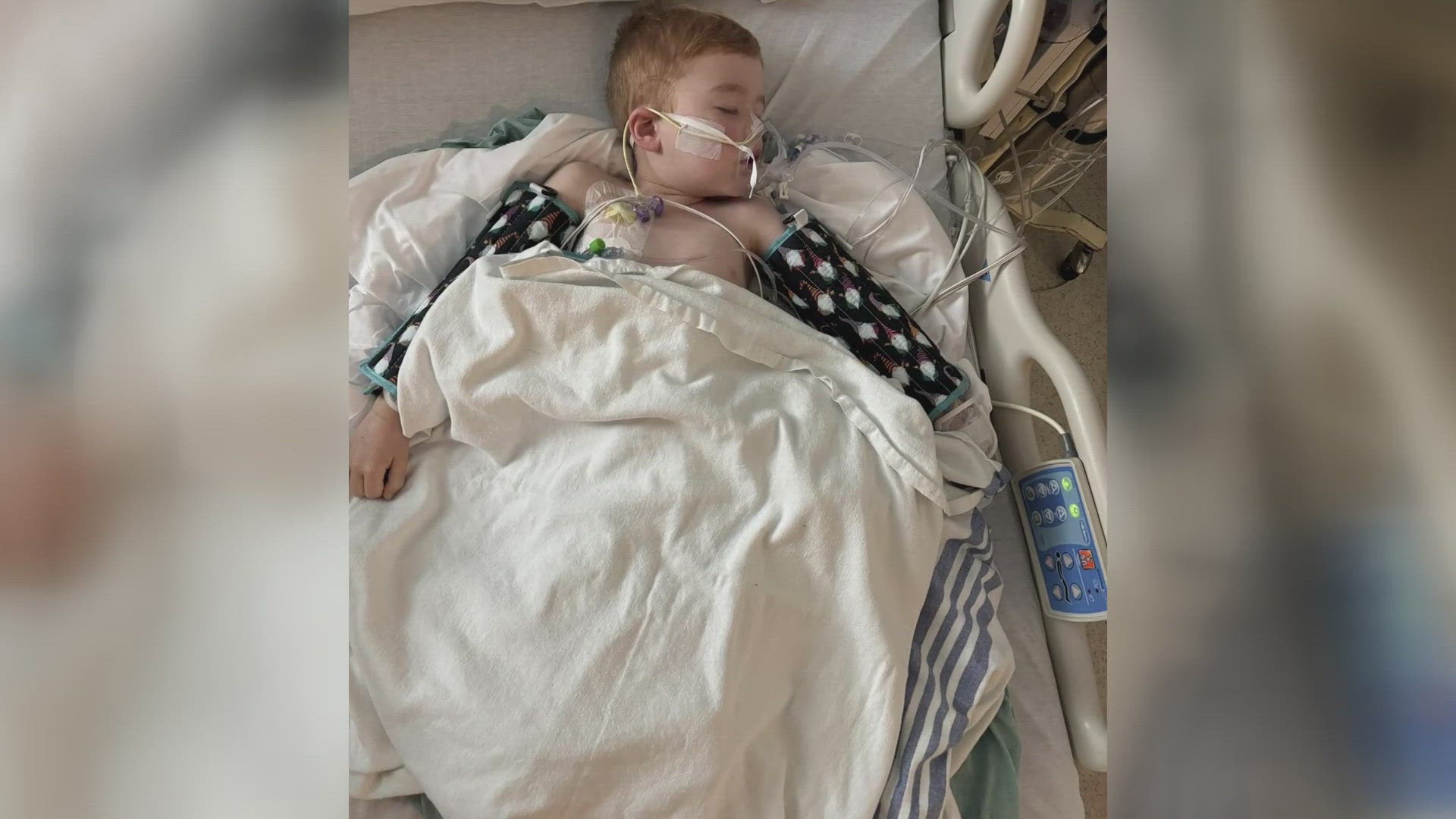KNOXVILLE, Tenn. — The American Cancer Society says more than two million people are expected to be diagnosed with cancer in 2024. Many of those patients need blood during chemotherapy, and four-year-old, Abram Harrell, is one of them.
Abram Harrell is a four-year-old with B-cell acute lymphoblastic leukemia. His father, Phil Harrell, said getting Abram the treatment he needs has become their whole lives.
"We have lived in the hospital a lot, literally weeks at a time," said Harrell.
Something that helps Abram during his treatment is blood and platelet transfusions.
"When you're going through cancer, the chemotherapy kind of takes out the blood. So anyone who is going through chemotherapy has to go through blood replacements so that they basically don't run out and that's kids and adults alike," said Harrell.
Staff at Medic Regional Blood Center said they've recently seen critical shortages of Type O blood. Type O- is known as the universal donor that can be given to everyone and O+ can be given to all positive blood types.
"We're starting to level off and our O+ and O-supply. We are still a little low but not as bad as we were," said Elyssa Hurley.
Hurley said blood donations are important because you can't substitute them.
"Donating blood is important because there's nothing that we can substitute it with, there's no artificial blood out there. We can't put it into somebody when we don't have it on the shelves. In order to save lives, we need to make sure we have it on hand and it's not just blood either. Cancer patients, leukemia, we also do platelet donations which are also insanely critical to cancer patients when they need things to help them clot so they don't bleed out internally, things like that," said Hurley.
She said that's why MEDIC is pushing for younger people to donate blood because usually, they aren't the demographic that's donating.
Janie Brice, a freshman at the University of Tennessee - Knoxville, said she wants to donate blood because it's a way to give back that's she able to do.
"It's all about giving back to the people that aren't in as fortunate situation as I am to have healthy blood, to be a healthy person, to be able to come to this university, and to give back in the little ways that I can," said Brice.
Phil said Abram has Type O-, which can only receive type O- blood. He said you can tell them you're donating for Abram if you donate at MEDIC. MEDIC awards your donation as a credit for Abram, which helps offset what his family pays.
"They basically kind of do like a bank, we have an account. And so the the blood goes into an account, it doesn't matter the blood type. And then he gets credit for it and the whole community actually uses that," said Harrell.
The Harrell family set up a Facebook page, called 'Abram's Army' so people can keep up with how Abram is doing. They said they're grateful for the support of people all over and it's helped them meet other families going through the same thing.
"We wanted to thank everyone that has donated and that has prayed for us along the way. We've had a huge community supporting us and we're very grateful God has blessed us through all this. And we're just grateful that people are willing to donate and do that for our child, someone they've never even met. It's pretty amazing," said Abram's mother, Permelia Harrell.
The family has also set up a GoFundMe to help cover the cost of hospital bills.

